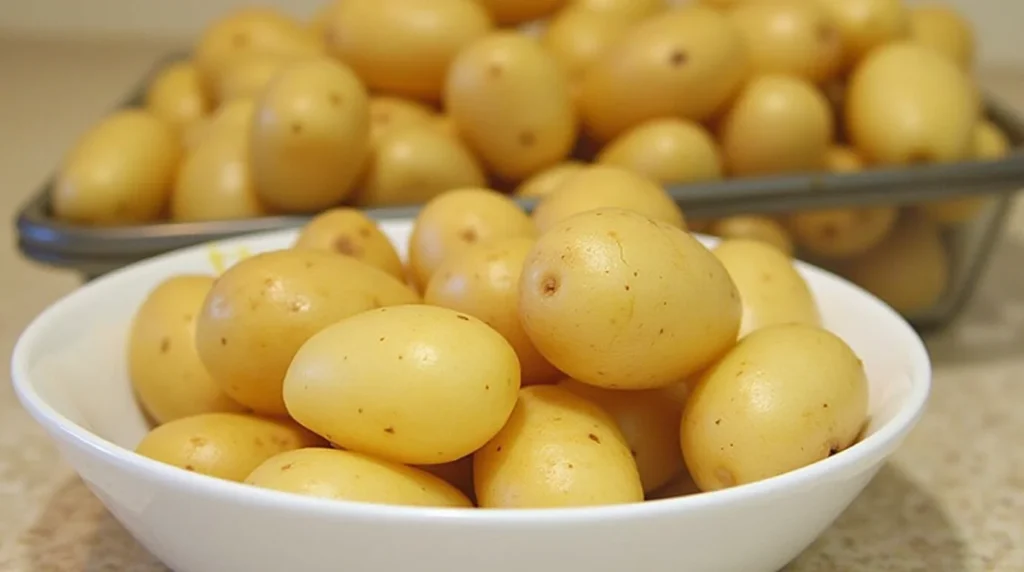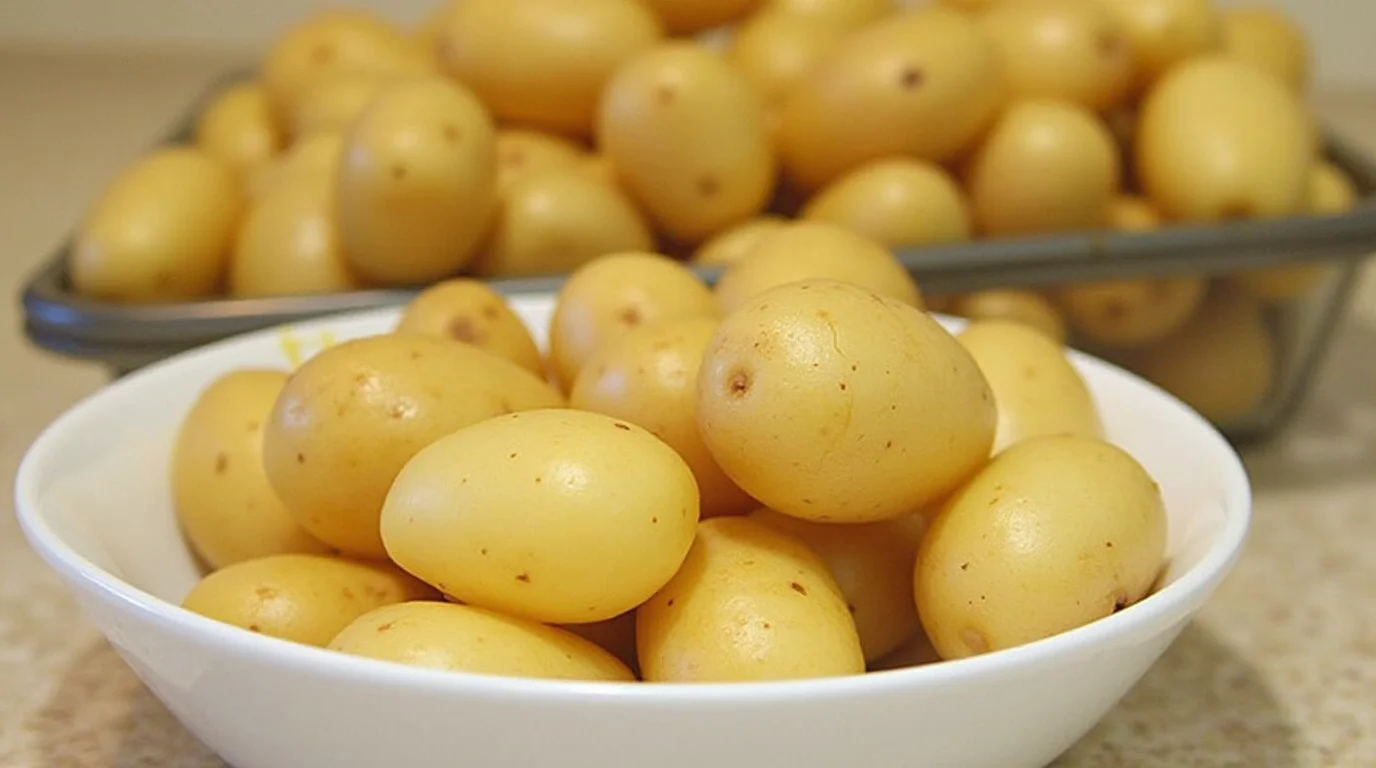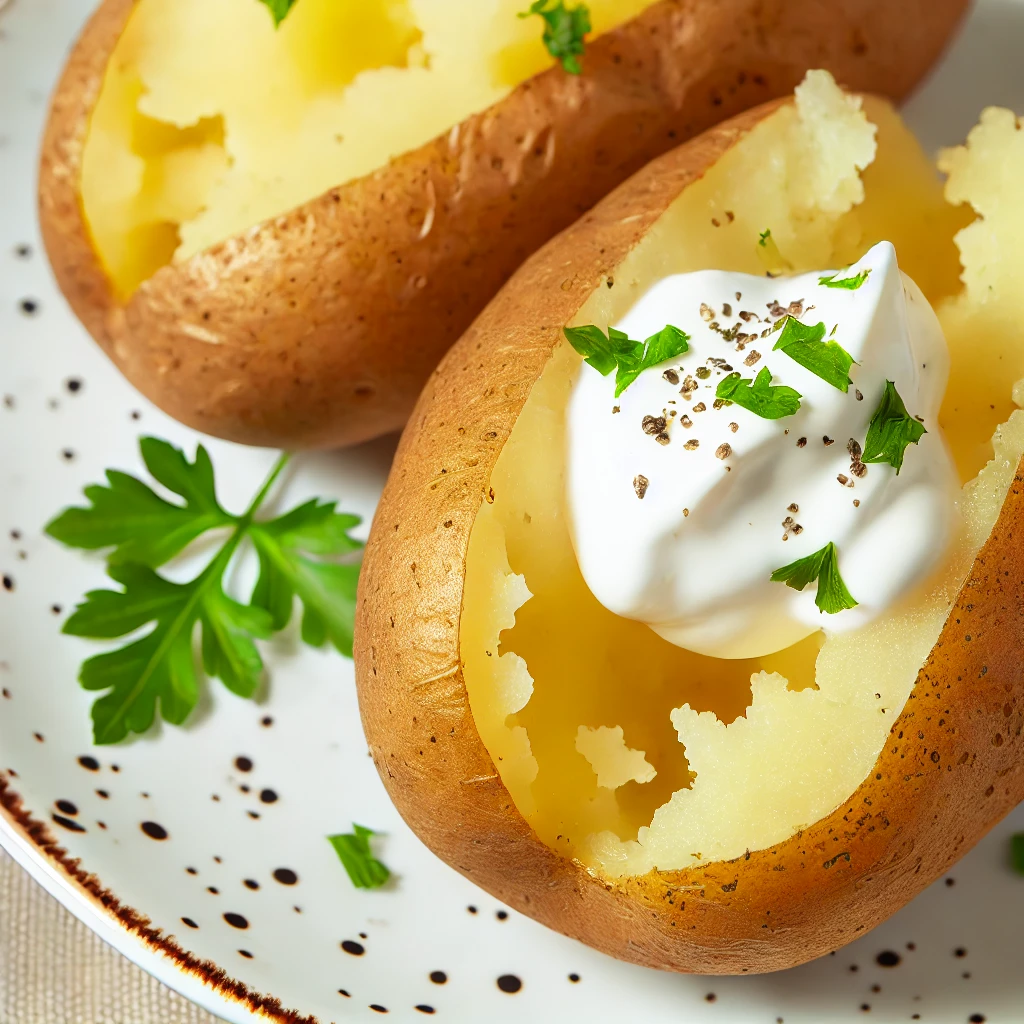




Yukon Gold potatoes are a beloved variety of potatoes that have gained immense popularity in the culinary world. Known for their buttery flavor, creamy texture, and versatile nature, Yukon Gold potatoes are a favorite among home cooks and professional chefs alike. In this article, we’ll dive deep into everything you need to know about Yukon Gold potatoes, from what makes them unique to the most popular recipes using them.
Yukon Gold potatoes are a type of all-purpose potato with smooth, thin, golden-yellow skin and creamy, yellow flesh. The variety was first introduced in Canada in the 1960s and has since become one of the most sought-after potato varieties worldwide. They were developed by crossing a North American white potato with a wild South American yellow-fleshed potato, resulting in a hybrid with both excellent cooking properties and a visually distinctive appearance.
Yukon Gold potatoes are known for their slightly waxy texture, which makes them ideal for boiling, mashing, roasting, or baking. Their subtle, nutty, and buttery flavor sets them apart from other potato varieties and adds a rich taste to any dish.
Yukon Gold potatoes stand out from other varieties for several reasons:
Yukon Gold potatoes have a distinctive taste that is both earthy and buttery, with a hint of sweetness. Their creamy texture makes them perfect for mashing, as they absorb butter and cream beautifully, creating a velvety finish. This sets them apart from waxy potatoes, which can sometimes be a little firmer and less rich in flavor.
Whether you're roasting, boiling, mashing, or frying, Yukon Gold potatoes deliver exceptional results. They hold their shape well when cooked, making them perfect for dishes that require the potatoes to stay intact. They also work great in soups and stews, as their flesh absorbs liquids while maintaining a firm texture.
The vibrant golden skin and flesh of Yukon Gold potatoes make them visually appealing. The bright yellow hue enhances the visual appeal of dishes and provides a striking contrast when used in mixed vegetable preparations.
In the UK, there isn’t a direct equivalent to Yukon Gold potatoes, but there are a few varieties that come close. The closest matches would be:
Desiree potatoes are a popular variety in the UK and share a similar waxy texture to Yukon Gold potatoes. They have red skin and a creamy, yellow flesh that closely mirrors the buttery flavor of Yukon Golds, making them a suitable substitute in most recipes.
Another alternative is the Charlotte potato, a waxy variety with yellow flesh. While Charlotte potatoes are more commonly used for boiling or making potato salads, their texture and flavor can provide a comparable experience to Yukon Gold in certain dishes.
Although these varieties may not be exact matches, Desiree and Charlotte potatoes can be used as substitutes in recipes calling for Yukon Golds, especially in dishes like mashed potatoes or roasted potatoes.
Not quite. While yellow potatoes and Yukon Gold potatoes share similar characteristics, they are not the same. Yellow potatoes is a broad category that encompasses various potato varieties with yellow flesh, and Yukon Gold is one specific type within that category.
While yellow potatoes can sometimes be substituted for Yukon Golds in recipes, they might not deliver the same results in terms of flavor and texture.
If you can’t find Yukon Gold potatoes, there are several alternatives that can provide a similar taste and texture. Here are some of the best substitutes:
Russet potatoes are a common alternative to Yukon Golds, especially when mashing or baking. While they have a starchier texture, they can provide a similar creamy, fluffy consistency when mashed, although they lack the buttery flavor of Yukon Golds.
Red potatoes, with their waxy texture, work well for roasting or boiling and can be a good substitute for Yukon Golds in those dishes. However, they don’t have the same buttery richness, so the flavor profile might be a little different.
Fingerling potatoes, particularly the yellow or butterball varieties, have a creamy texture and a buttery taste similar to Yukon Golds. They can be used in place of Yukon Gold potatoes in most recipes, especially in roasted or boiled preparations.
Each of these varieties can work as a substitute depending on the specific dish you’re preparing. If you’re after the creamy, buttery flavor, choosing fingerling or red potatoes might be the best alternative.
Yukon Gold potatoes are a nutritious food choice and offer a variety of health benefits. Here’s a breakdown of their nutritional content:
Yukon Gold potatoes are incredibly versatile, and there are many delicious ways to enjoy them. Here are some popular recipes:
Creamy mashed Yukon-Gold potatoes are a classic comfort food. Simply boil the potatoes, mash them with butter, cream, salt, and pepper, and you’ll have a rich, velvety side dish that pairs well with almost anything.
Roasting Yukon-Gold potatoes with olive oil, garlic, herbs, and spices is a simple yet flavorful way to enjoy their natural taste. The crispy exterior and tender, buttery interior make them a crowd favorite.
For a twist on the classic potato salad, try using Yukon-Gold potatoes. Their creamy texture makes them perfect for absorbing the flavors of the dressing, whether you prefer a mayo-based or mustard-based dressing.
A creamy Yukon Gold potato soup is a cozy dish perfect for colder months. Combine diced potatoes with onions, garlic, broth, and cream to create a hearty soup, and top with crispy bacon and chives for extra flavor.
Scalloped potatoes made with Yukon Golds are decadent and delicious. Layer thin slices of potatoes with a creamy cheese sauce and bake until golden and bubbly.
In conclusion, Yukon-Gold potatoes are a versatile, flavorful, and nutritious addition to any meal. Whether you're mashing, roasting, or using them in soups and stews, they deliver a rich, buttery taste that enhances a wide range of dishes. Try them in your next recipe and experience their unique qualities for yourself!
